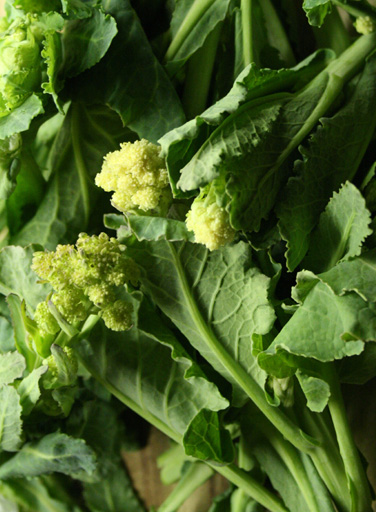
February 24, 2011
Small and standard boxes will have totally local vegetables:
onions (Restharrow Farm, Trebetherick)
potatoes (Benbole Farm, St Kew)
* garlic (Mark Norman)
* parsnip (Mark)
white sprouting broccoli (Restharrow Farm)
* leeks (Jeremy Brown, St Kew Harvest)
savoy cabbage (Restharrow Farm)
Standard boxes will have extra potatoes and onions plus:
* jerusalem artichokes (Jeremy)
* mixed salad bags (Mark)
* = grown to organic principles
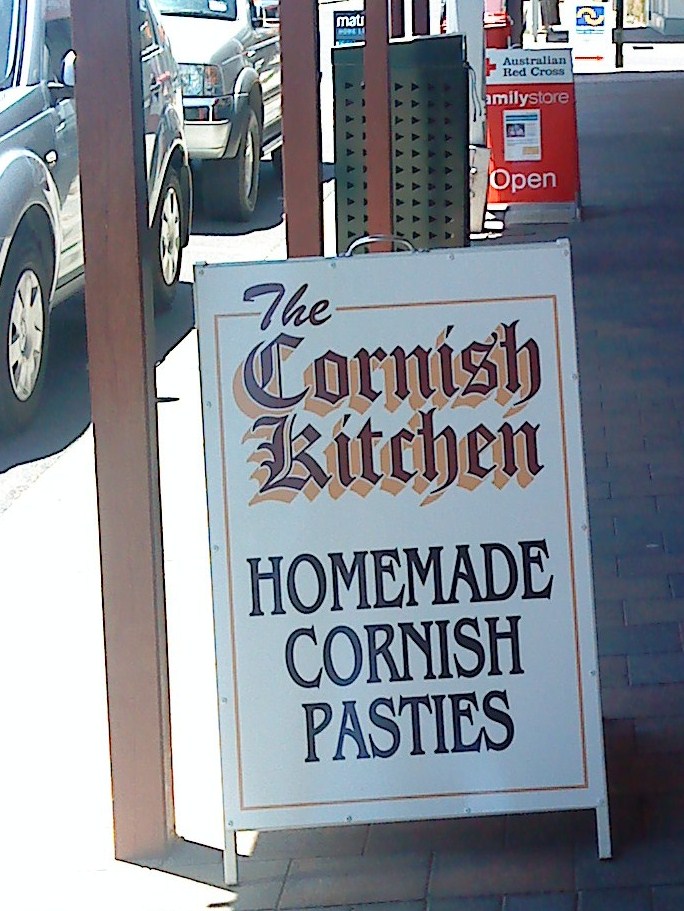
February 23, 2011
Oggy! Oggy! Oggy! So traditional Cornish pasties made here in Cornwall are now safeguarded by European Protected Geographical Indication status. What a mouthful.
But the delicious taste of victory could be spoilt by an undignified row about exactly how the pastry case should be crimped and precisely what should go inside it.
Personally I feel sorry for the Australians, who might now have to think what to call their so-called “Cornish” pasties. It’s a good thing they don’t export them to Europe. They’ve already had to give up marketing Australian sparkling wine as “champagne”.
Pasties are particularly popular in the Cornish Triangle or Copper Coast on the Yorke Peninsula in South Australia where Cornish miners, known as Cousin Jack, emigrated in the 19th century.
My own experience is that “Cornish” pasties made in Australia, even in the friendly and delightful South Australian town of Moonta (pictured), are a poor relation of the genuine article.
Soggy rather than oggy, unfortunately.
Update: It turns out the Australians are a little upset about this – see Cornish ruling worries Aussie pasty makers – ABC
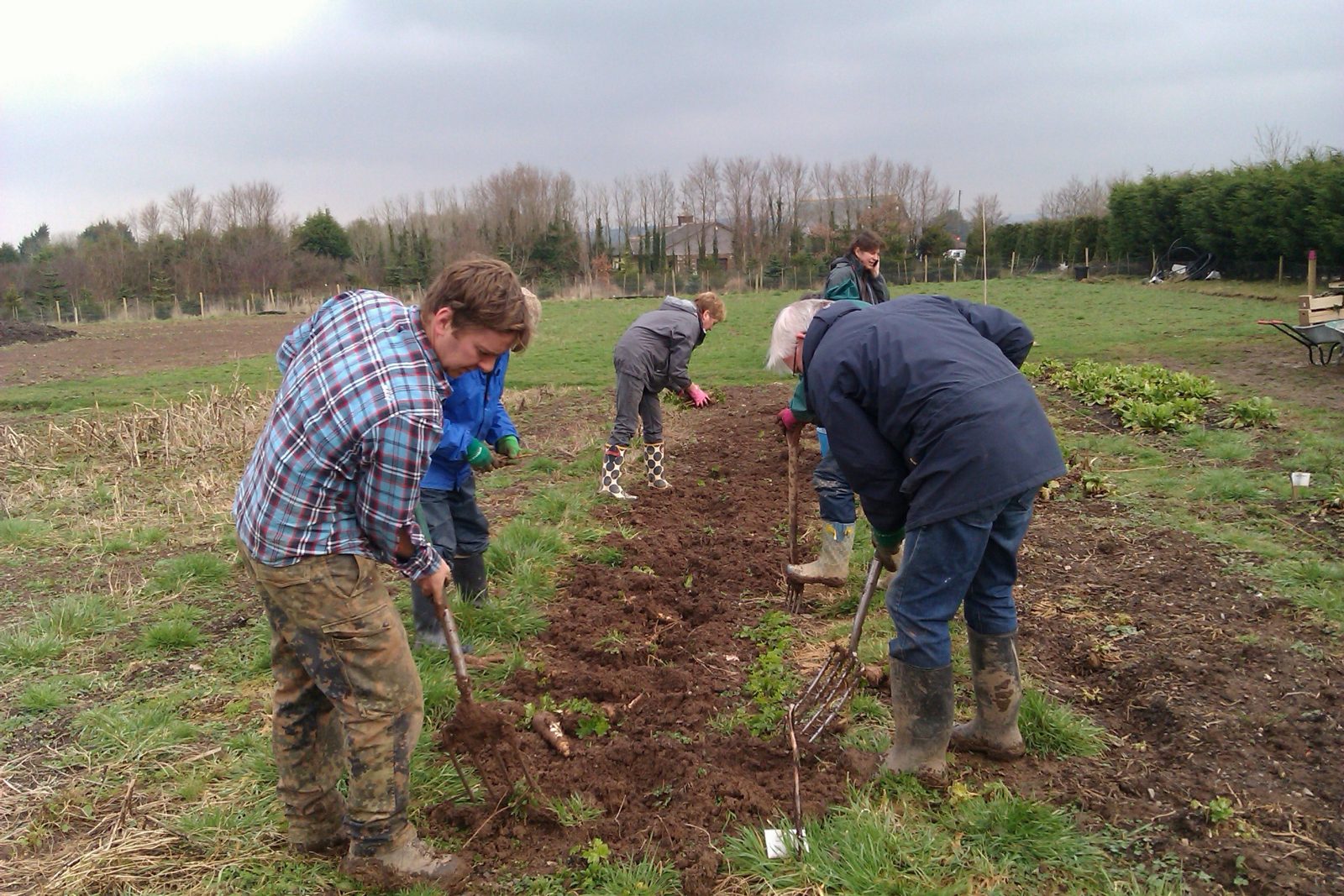
February 21, 2011
Camel Community Supported Agriculture’s volunteers have harvested the last of the parsnips for the weekly vegetable boxes.
Now we’ve dug up all the Jerusalem artichokes as well, there’s only some frost-bitten Swiss chard remaining out of what we grew last year.
At the same time we’ve planted the first of this season’s seeds in growing modules – spring onions, lettuce, onions and parsley.
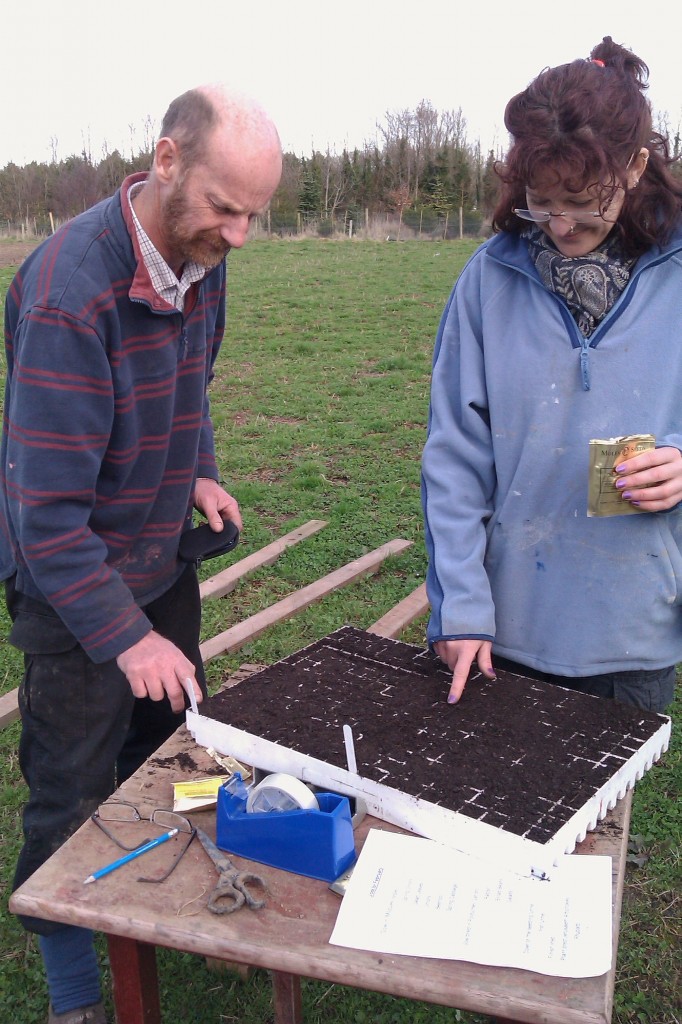

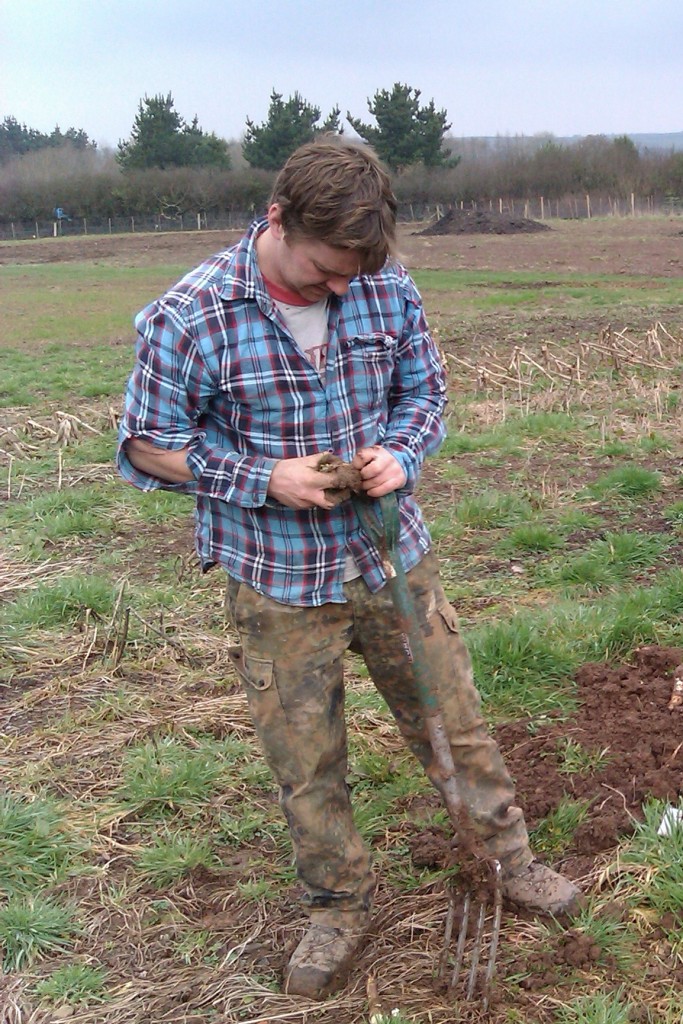
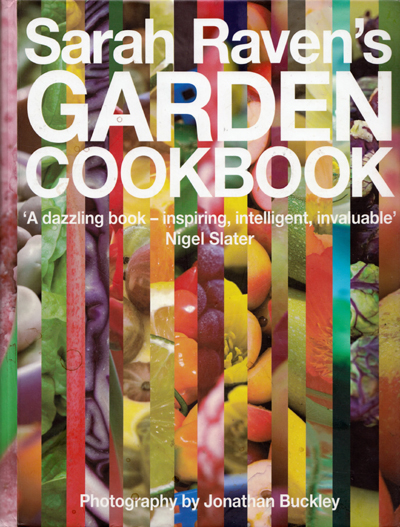
February 18, 2011
From Sarah Raven’s Garden Cookbook. Good with a sharp tartare sauce or mustard mayonnaise, she says. They freeze well, so you can make lots in one go.
For 8 fishcakes
Preparation and cooking: 40 minutes
Ingredients
½ onion, chopped
75g streaky bacon, chopped
300g smoked haddock
1 bay leaf
6 cloves
275 milk
150g parsnips, chopped
150g potatoes, chopped
10g butter
chopped parsley
1 red chilli, finely chopped (optional)
salt and black pepper
seasoned flour
1 egg, beaten
80g white breadcrumbs
olive oil, for frying
Method
Cook the onion with the bacon over a moderate heat for 10 minutes and put to one side.
Put the smoked haddock into a pan, together with the bay leaf and cloves. Pour over the milk, cover and bring to the boil. As soon as the milk boils, remove from the heat and allow the fish to cool in the liquid.
Boil or steam the parsnips and potatoes together until they are tender. Mash them with the butter and a dash of the boiled milk and season well.
Combine the onions, bacon, mashed potatoes and parships, parsley and chilli, if using. Barely flake the fish, and fold carefully into the vegetable mixture. The fishcakes are far nicer if the flakes of fish are intact. Adjust the seasoning.
Dust your hand with seasoned flour and shape balls of the mixture into cakes. Dip these into the beaten egg and coat with the breadcrumbs.
Shallow-fry in the olive oil until golden or bake for 15-20 minutes in an oven preheated to 180C/gas mark 4. They can be made in advance and kept on a baking tray in the fridge until you want to cook them.
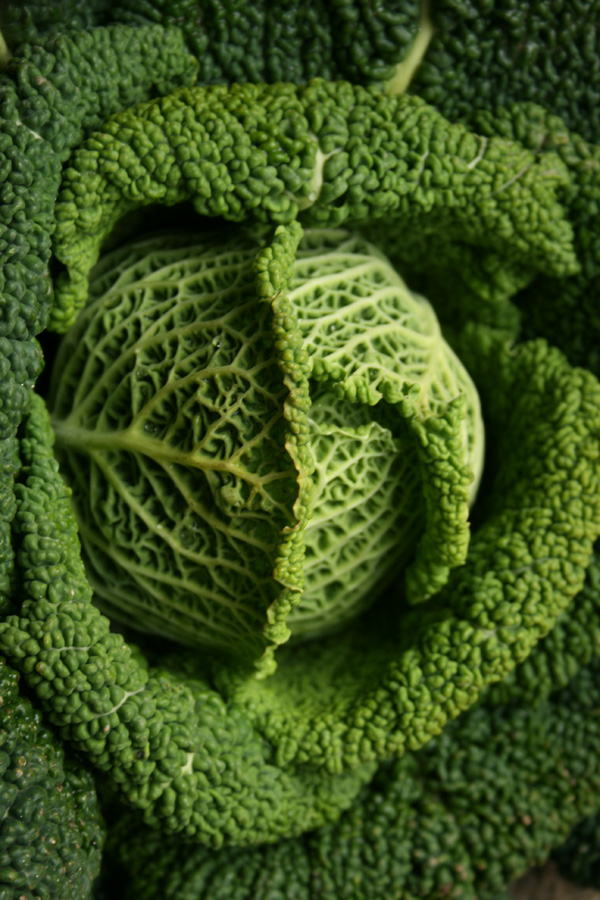
February 17, 2011
Small and standard boxes will all have:
potatoes (Benbole Farm, St Kew)
onions (Restharrow Farm, Trebetherick)
savoy cabbage (Restharrow Farm)
* garlic (Camel CSA)
* parsnips (Camel CSA)
cauliflower (Celtic Produce)
Standard boxes will also have extra potatoes, onions and garlic plus:
* leeks (Jeremy Brown, St Kew Harvest)
* jerusalem artichokes (Jeremy)
swede (Celtic Produce)
The beetroot delivered by Celtic Produce turned out to be from Spain, not Cornwall. So box share members are being given the option to take a bunch only if they want it.
* = grown to organic principles
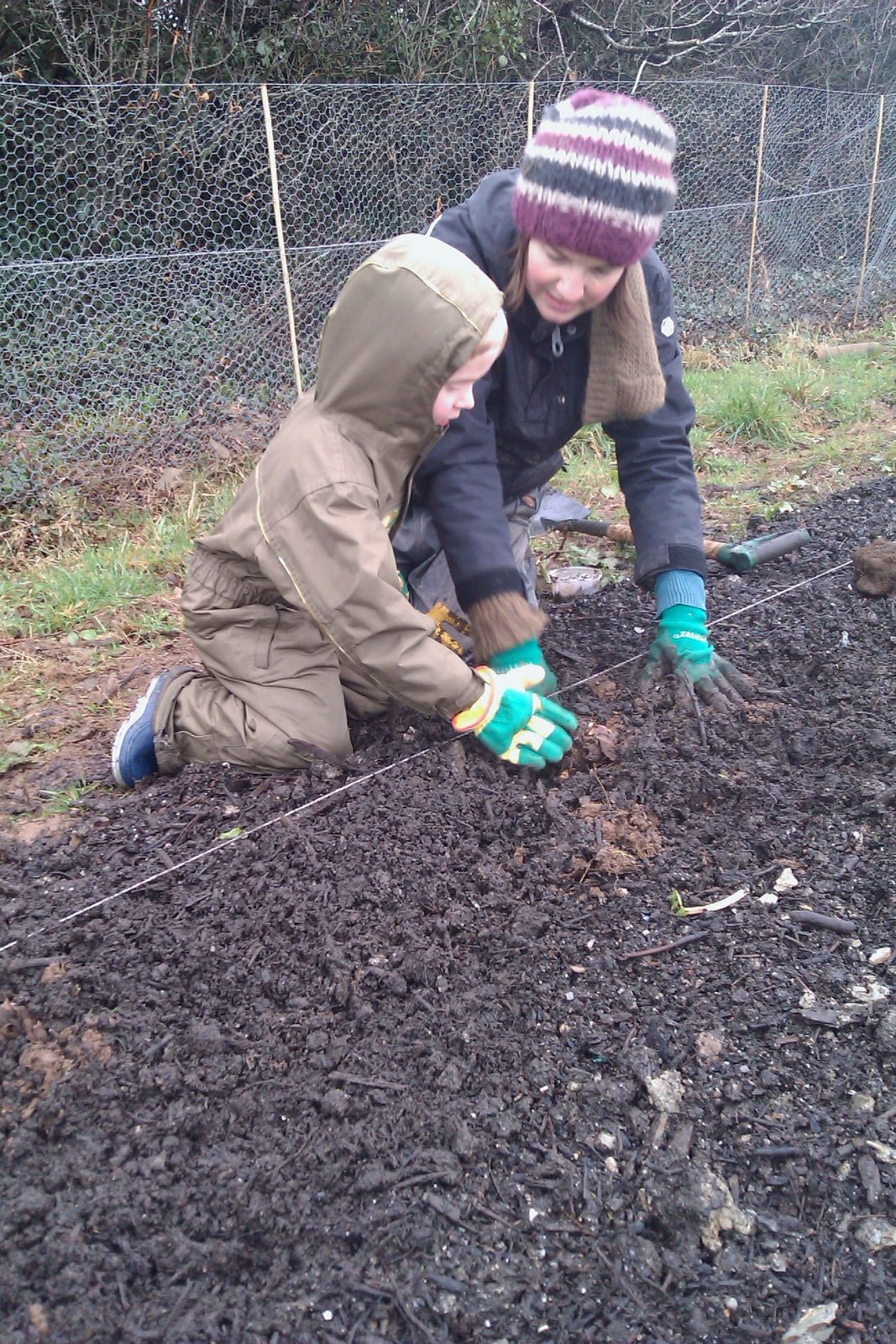
February 14, 2011
The growing team have begun digging out the dock weeds that are springing up all over our brassica plot.
Camel Community Supported Agriculture’s commitment to growing vegetables organically means no chemical sprays! So every broad-leaved dock must be painstakingly dug out by hand. We need to avoid breaking the roots, as any remaining fragments will re-sprout.
We’ve planted rhubarb in the perennial area, where we’re preparing to grow gooseberries, raspberries, globe artichokes and Jerusalem artichokes. Work also continues on the interior of the toolshed.
Thanks to expert growers Jane, Jeremy B, Mark N plus volunteers Antonina, Bob, Bridget, Cath, Charlotte, Dan, Danny, Evie, Gav, Gillian, Mark M, Mike S, Paul, Sophie, Trish F, and children Aimee, Carla, Christian, Finn, Freddie, Keira, Max, Sammy, Seth, Sophie.
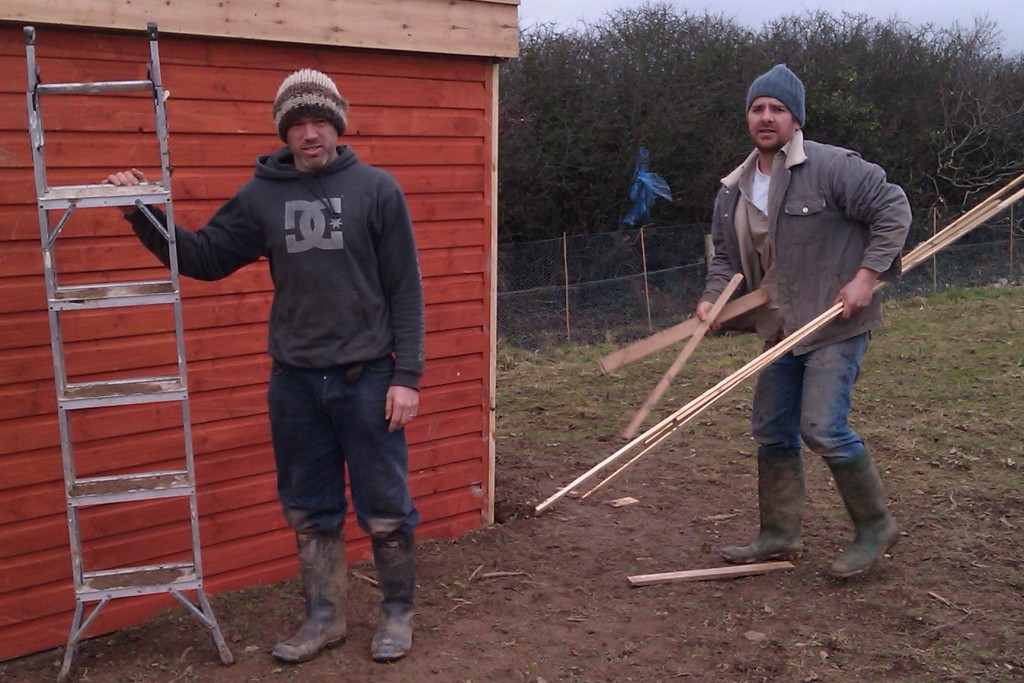
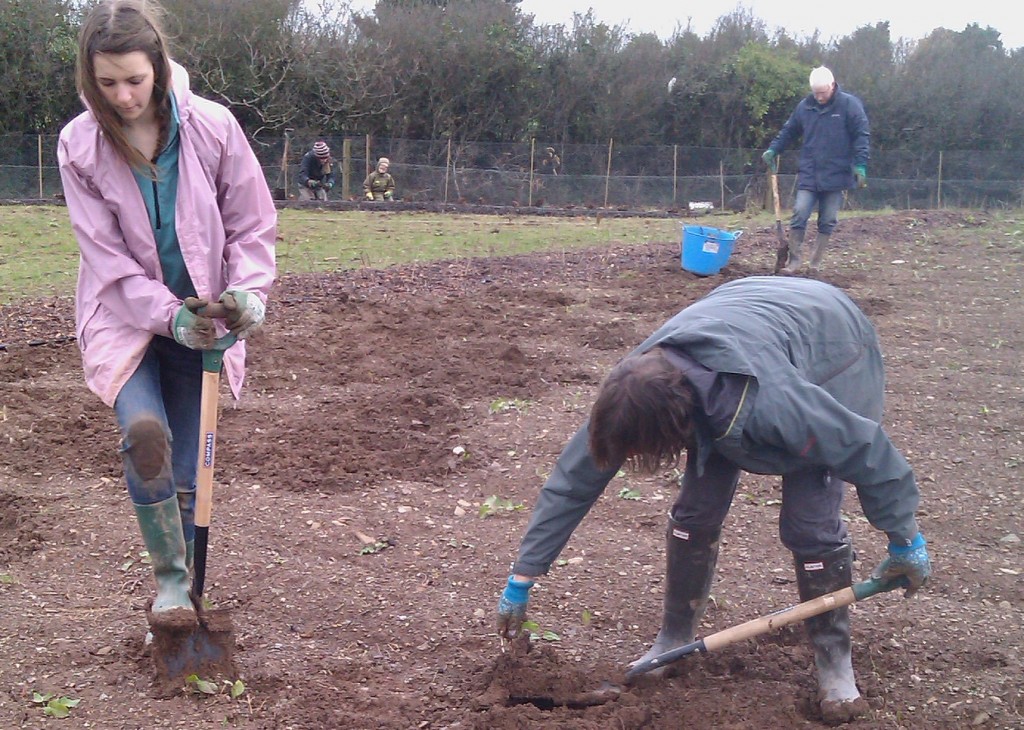
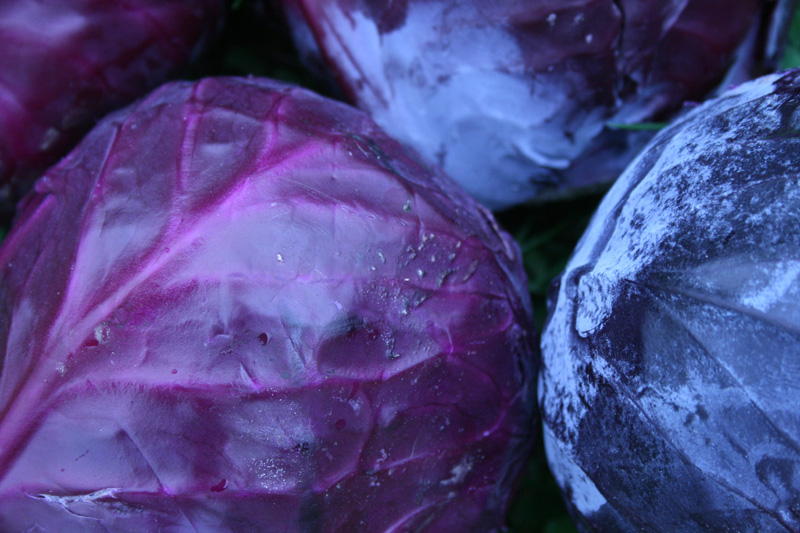
February 11, 2011
From Sybil Kapoor’s Modern British Food. Eat as soon as it’s cooked.
Serves 4
Preparation: 5 minutes
Cooking: 10 minutes
Ingredients
115g soft goat’s cheese, roughly diced
1 tbsp finely chopped chives
2 tbsp walnut (or olive) oil
4 spring onions, finely sliced
225g red cabbage, cored, quartered and finely sliced
1 dessert apple, cored, quartered and thinly sliced
30g walnut halves
1-3 tbsp balsamic vinegar
salt and pepper
Method
Place the goat’s cheese and chives in a large salad bowl.
Heat the oil in a large frying pan and quickly stir-fry the spring onions and cabbage until they begin to wilt. At this stage add the sliced apple, walnut halves, vinegar and seasoning to taste. Allow to heat through and then toss into the cheese and chive bowl. Quickly mix and serve warm.
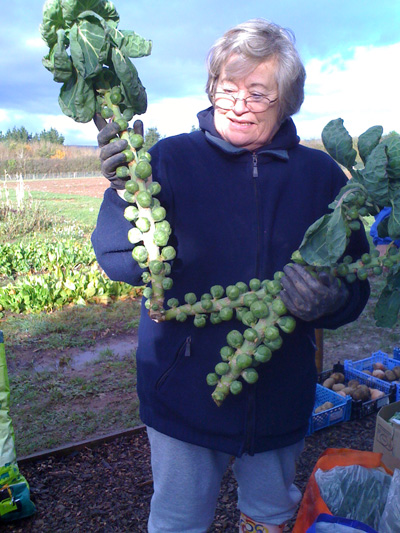
February 10, 2011
The CSA’s jerusalem artichokes may be finished, but there are still some available from Jeremy Brown.
Small boxes will have:
potatoes (Benbole Farm, St Kew)
onions (Restharrow Farm, Trebetherick)
sprout stalk (Restharrow Farm)
red cabbage (Restharrow Farm)
* parsnips (Mark Norman)
* leeks (Jeremy Brown, St Kew Harvest)
Standard boxes will have the same with extra potatoes, onions and parsnip plus:
kale (Restharrow Farm)
swede (Restharrow Farm)
jerusalem artichokes (Jeremy)
* = grown to organic principles
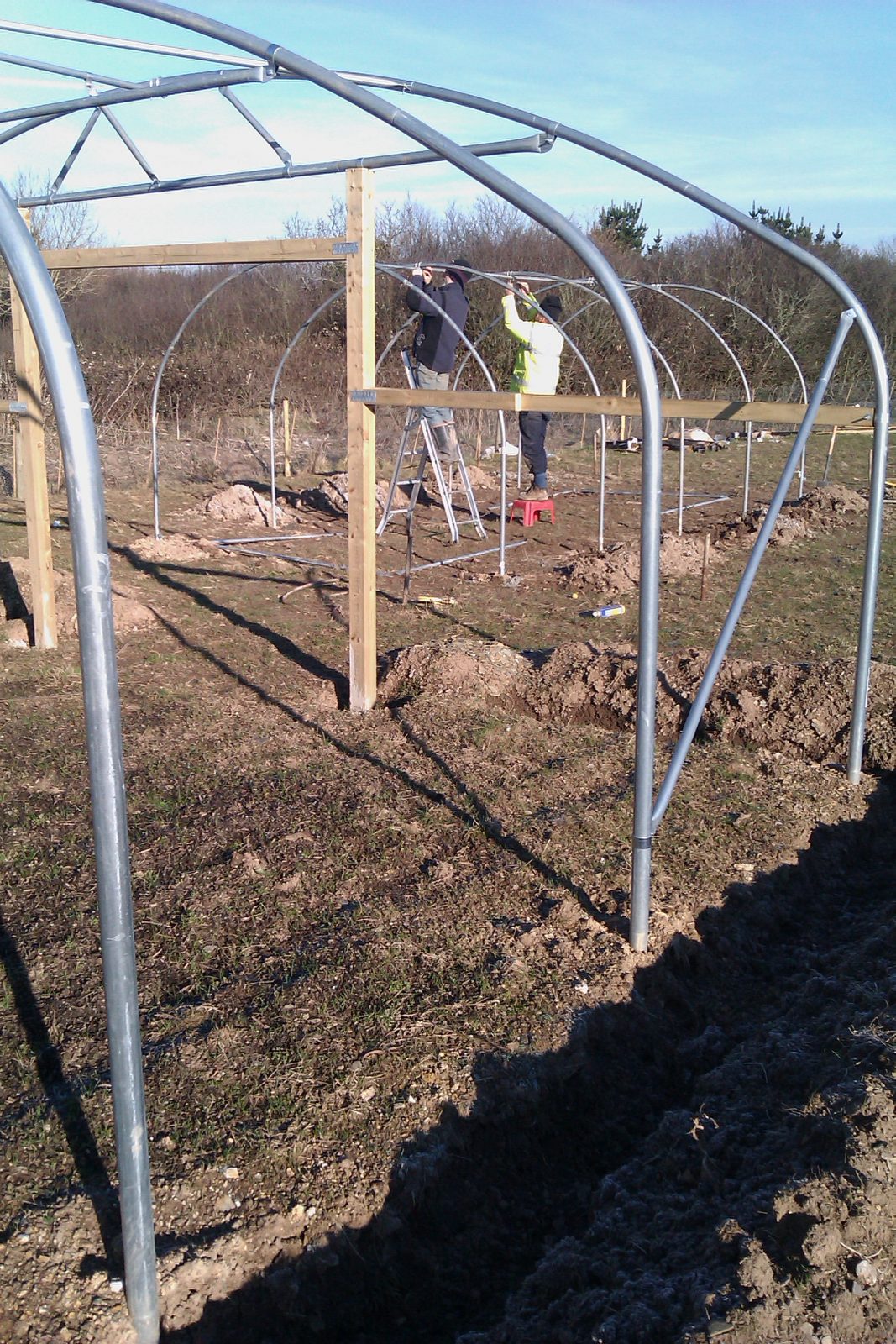
February 9, 2011
Our growing team is preparing for the busiest year we’ve had so far.
Now we’ve got support from the Lottery Food Fund and ECLAG we’re forging ahead and constructing two large polytunnels, a small seeding tunnel, a large tool shed and a potting shed.
Over the next two weeks we’re hoping to plant rhubarb and Jerusalem artichokes in new permanent beds. And we need to get rid of the dock weeds that are springing up everywhere.
The plastic covers will go on the polytunnels by early March, provided we get a calm, warm weather window. Then we’ll sow broad beans, carrots, radish and assorted salad leaves directly inside the tunnels.
We’ll also plant seeds in modules, starting with spring onions, salad, spinach, chard, beetroot, parsley, celeriac and spring cabbage.



February 4, 2011
This is a classic recipe from Elizabeth David’s French Provincial Cooking. It’s a dish to make, she says, ‘when you have a glass of wine, red, white, rosé, sweet, dry or aromatic (ie some sort of vermouth) to spare’.
Serves 4-6
Preparation: 10 minutes
Cooking: 1½ hours
Ingredients
6-8 onions, all the same size
1 tbsp olive oil
small glass of wine
water
salt and pepper
Method
Peel the onions and put them with the olive oil in a thick pan in which they just fit comfortably. Start them off over a moderate flame and, when the oil is beginning to sizzle, pour in a small glass of wine. Let it boil fiercely for a few seconds. Add water to come half-way up the onions. Transfer to a low oven and cook uncovered for about 1½ hours. Put back on top of the stove over a fast flame for 2 or 3 minutes, until the wine sauce is thick and syrupy. Season. Serve as a separate vegetable, or round a roast.


